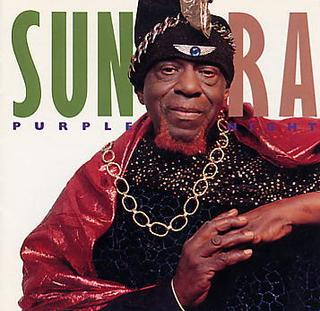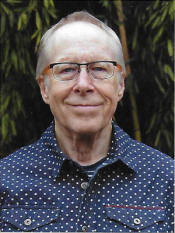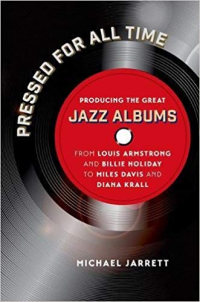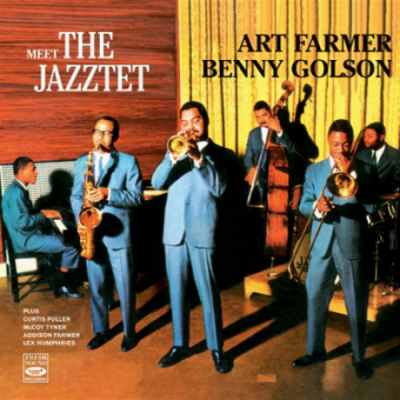.
.
Drawn from interviews with prominent producers, engineers, and record label executives, Michael Jarrett’s Pressed For All Time: Producing the Great Jazz Albums is filled with interesting stories behind some of jazz music’s most historic, influential, and popular recordings. In cooperation with Jarrett and University of North Carolina Press, Jerry Jazz Musician will occasionally publish a noteworthy excerpt from the book.
.
In this edition, producer John Snyder recalls Sun Ra, and his 1990 Purple Night recording session
.
.

Carol Friedman‘s photograph of Sun Ra was featured on the cover of the 1990 A&M album Purple Night
.
___
.
.
Since 1977, John Snyder has produced over 300 original recordings, 34 of which have been nominated for Grammy Awards. He has produced albums for A & M, Atlantic, Fantasy, MusicMasters, Concord, RCA, Sony, Antilles, Verve, Private Music, Telarc, GRP, Elektra, Rounder, Columbia, Evidence, and Justin Time.
He once worked as the assistant to president Creed Taylor of CTI Records, overseeing all legal and business affairs, publishing, manufacturing, distribution, and A&R operations.
.
Snyder recalls Sun Ra, and his 1990 Purple Night recording session:
.
.
…..I remember Sun Ra. We rehearsed for a week because I wanted to see what that would be like. I made one record with him for A&M where I just kind of showed up [Blue Delight, 1989]. But we got along real well. On the [first] date he didn’t know me, and so he just did his thing. It was like riding a bronco and holding on.
…..The second record, I said, “We’re going to budget for rehearsals for Sun Ra, and we’re going to bring everybody in, and we are going to work everything out.” Purple Night was three drummers, a percussionist, dozens of musicians, his usual band plus Don Cherry, an extra percussionist, and more keyboards.
…..Okay, so we know what songs we’re going to do. We go do the rehearsals, and we’ve go the record date. We had three nights for recording. After the first night, I said, “Sonny, you didn’t record any of the songs we rehearsed.”
…..“John, look at it this way,” he said. “Suppose I was a football coach, and we had a big game on Sunday. We practiced all day, every day for the week before that.” He said, “We never played that game we played on Sunday during practice on Monday or Tuesday or Wednesday. We just practiced for it.”
…..“Well, okay,” I said. “But that’s not quite the same thing is it?”
…..“No, it’s the same thing. We got used to playing together and playing in certain ways, in certain feelings, and I am just taking those things and plugging them into another format, another structure.”
…..That’s what he did. In a sense it was the ultimate in improvisatory music, but it was as rehearsed as you could get it. They had rehearsed being ultimately improvisatory. They had never rehearsed exactly the same thing that they played. That’s the difference.
…..During recording, he’d point to things and make motions. He’d direct by playing. In a sense Gil Evans did that, too. Sun Ra would kind of work it around and work it like he was stirring something. There was one particular thing, early in the session, where it was mixing and mixing, and all at once it started to boil. It was like a big round rocket ship that was moving slowly off the ground with great power and then, all of a sudden, it went. I looked at Jay [Newland, the engineer] and said “Wow! This is incredible.” He was wide-eyed like, “Man, this thing that just happened was something!” The band kept playing. The tape ran out, and even then, on another tape seven more minutes went by before they stopped. It was quite a trip, a good experience.
…..One time when he was playing at the Vanguard, I went down to the millinery district in the City and bought a bunch of feathers and beads to give to Sun Ra. He was into that, colorful materials. I went back in the kitchen, and there was Sun Ra with no shirt on, looking like a rather out-of-shape Buddha. There were people around him, dressing him, shaving him, attending to him: his musicians and June [Tyson]. He had that kind of effect on people. He was the guru, and they took care of him.
… I thought it was fascinating. He mistreated them, didn’t pay them very well. One time I said to him, “Sun Ra, all your guys are so shaggy, living in your house. What is up with that?”
…..“John,” he said, “all musicians are in some kind of jail. My musicians are in the Sun Ra jail.”
…..“Okay.” That’s the way he thought. He knew his position. He’d also talk about being from Saturn. I didn’t even take note of that, didn’t say anything about it. Sherman, one of the guys who worked for me, asked him, “Hey Sonny, tell me something. Do they have pork chops on Saturn?” That pissed him off. He didn’t like being made fun of like that. He didn’t even answer.
…..Sun Ra wasn’t born; he was dropped. He was dropped in Birmingham [Alabama]. He’s probably up there on Saturn right now saying, “I told you so.”
…..I don’t really know what causes people to be the way they are. He certainly manifested himself in interesting ways. His detachment from Earth was reflected accurately in his music. What people choose to be inspired by is a strange thing.
.
___
.
.
Listen to Sun Ra play “Friendly Galaxy” from Purple Night:
.
.
.
.
_____
.
.
From Pressed for All Time: Producing the Great Jazz Albums from Louis Armstrong and Billie Holiday to Miles Davis and Diana Krall. Copyright © 2016 by Michael Jarrett. Published by the University of North Carolina Press. Used by permission of the publisher. www.uncpress.unc.edu
.
.
___
.
.
photo by Pamela Jarrett

Most of Michael Jarrett’s writing on jazz production appeared in Pulse!, Tower Records’ magazine. His day job, however, was professor of English at Penn State University (York Campus). In addition to .Pressed for All Time, his book about jazz record production, Jarrett wrote. Drifting on a Read: Jazz as a Model for Writing; .Sound Tracks: A Musical ABC; and .Producing Country: The Inside Story of the Great Recordings. He is now retired. He and his wife live in the village of Ojochal, on the southern Pacific coast of Costa Rica.
.
.
.


































Sun Ra, truly a rare genius.